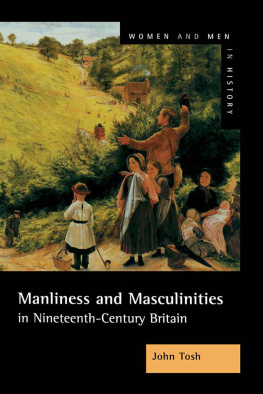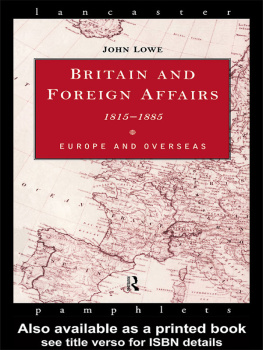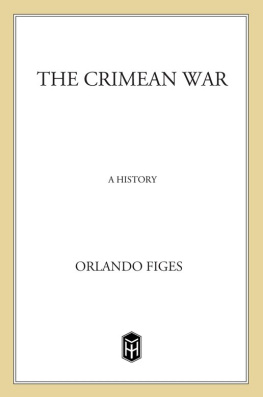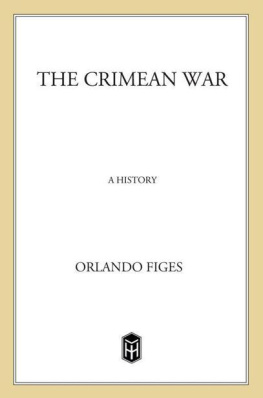A HISTORY OF ENGLAND
From the Conclusion of the Great War in 1815
VOLUME 6
SPENCER WALPOLE

This 2011 edition published by Barnes & Noble, Inc.
All rights reserved. No part of this publication may be reproduced, stored in a retrieval system, or transmitted, in any form or by any means, electronic, mechanical, photocopying, recording, or otherwise, without prior written permission from the publisher.
Barnes & Noble, Inc.
122 Fifth Avenue
New York, NY 10011
ISBN: 978-1-4114-5330-2
CHAPTER XXIV
THE CRIMEAN WAR
T HE vast Power which frowns over Eastern Europe, and which for centuries has been extending its possessions and accumulating its resources, has only a difficult and imperfect access to the ocean, the common highway of mankind. Her northern shores are fringed with a frozen sea, her southern limits are lost in the arid wastes of Central Asia. On the north-west and south-west, indeed, two inland seas give her an intermittent or doubtful access to the Western world. But the navigation of the Baltic is annually interrupted by the ice of winter. The navigation of the Bosphorus is at the mercy of the Power which holds the city of Constantine. Every educated Russian consequently sighs for predominance at the Porte, which is the gate of the Russian Empire.
The forces which would in any circumstances impel the Russians to gravitate towards the Bosphorus are augmented by the condition of European Turkey. A warlike race, of a religion strange to Europe, governed by an autocracy which is at once brutal and feeble, has been encamped for centuries on the soil of the rich provinces which stretch from the Danube on the north to the Greek frontier on the south. The descendants of the former inhabitants of this country, degraded and exhausted by a long course of bad government, sigh for independence and relief. They turn in their distress to Europe for the help which their own right hands seem powerless to afford them. Independence they would gladly receive from any Power, but two influences, the strongest among those by which nations are affected, induce them to look especially towards Russia. One large portion of the inhabitants of European Turkey is allied to Russia by ties of race. Another large portion is connected with it by ties of faith. The Slave naturally looks to the great Slave Power of Northern Europe for the redress of his grievances, while the Greek regards the Czar of all the Russias as the head of his Church.
Turkey is rarely free from questions of race and religion. As the second half of the nineteenth century commenced, two obscure subjectsone involving race, the other religionforced themselves into prominence. The inhabitants of the little principalitythe Black Mountainhave for centuries maintained a desultory warfare against the Turk. In 1852 they resumed their aggressions. The Turk decided on repressing disorder by the occupation of their territory, and entrusted the task to Omar Pacha, a general of repute. In taking this step, the Porte hardly foresaw all the consequences of its decision. Austria, just recovering from the crisis of 1848, was alarmed at the prospect of fresh disorder near her own frontiers. Determined to stop war at any cost, in January 1853 she sent General Count Leiningen to Constantinople, to demand the withdrawal of Omar Pacha. The Porte, alarmed at language which, coming from Austria, was as unaccustomed as it was peremptory, gave way. Omar Pacha was recalled, and the Montenegrin difficulty terminated.
Events were, in fact, taking place in Constantinople which made it impossible for the Porte to risk the enmity of Austria. Another question, growing in intensity, was agitating the counsels of the Sultan. The Porte has for centuries possessed the fortunate or unfortunate country which every Christian knows as the Holy Land. In the Middle Ages torrents of blood had been poured out, hoards of treasure had been exhausted, in a vain endeavour to reconquer for Christendom the places which are indelibly associated with the life of the Divine Man who founded Christianity. In modern Europe devout Christians adopted the easier course of making pilgrimages to the spots which are hallowed by the memory of Christ. Members of the Latin as well as of the Greek Church composed these pilgrimages. Members of the Latin as well as of the Greek Church guarded the sanctuaries and officiated at the shrines.
More than a century before the Crimean War, France, in a treaty with the Porte, obtained for the Latin Church possession of all the places which it owned in 1740. The atmosphere of the eighteenth century, however, was opposed to any zealous retention of these privileges, and the Latin races, reading Rousseau and Voltaire, had not much thought for Holy Shrines in Palestine. But the Greek branch of the Christian Church was not affected by the influences which ultimately enshrined Reason in the capital of France. Its members still repaired in their hundreds and in their thousands to the Holy Shrines of Palestine. They occupied the places which the Latins neglected, they repaired the edifices which the Latins suffered to fall into decay, and they obtained special permits from the Porte authorising them to execute these works. If, therefore, the Latins had originally a treaty right, the Greeks in the course of time acquired by usage a right to occupy these sacred places.
The religious revival of the nineteenth century, affecting other countries besides England and Scotland, again directed the attention of religious people to the scenes which were permanently associated with the life and labours of Jesus Christ. England, in conjunction with Prussia, resolved on the strange expedient of appointing a Protestant Bishop of Jerusalem. Roman Catholics in France again cast their thoughts to the Holy Places which their ancestors had neglected. Louis Napoleon, after his accession to the Presidency of the Republic, anxious to induce the Conservatives of France to range themselves behind his chair, grasped at a question which was interesting to every religious man. The same causes which induced him to restore the Pope to Rome with the assistance of French bayonets induced him in May 1850 to assert the right of France to place the Latin monks in possession of the Holy Places.
The paper in which the French formulated their demand was subsequently described by a Russian official authority as an ardent polemic.
When the discrepancy between the firman and the letter became known fresh irritation was excited. The French declared that they had consented for the sake of peace to waive the undoubted rights which the treaty of 1740 gave them, and that those rights were decided against them in the firman. The Russians consequently, relying on the firman, insisted on its being publicly read at Jerusalem. The French, protesting against it, obtained a promise from the Porte that it should not be read in that city.
A quarrel, therefore, temporarily allayed in the spring, was ready to burst into a fresh flame in the summer. And it so happened that another circumstance was producing estrangement between France and Russia. The Russian Court had seen without regret the election of Louis Napoleon to the Presidency of the French Republic. The President was identified with the cause of order, and in the Conservative atmosphere of St. Petersburg order was of paramount importance. For the same reason it had seen with pleasure the conduct of the President in December 1851. "The coup d' tat" was "a genuine service rendered to order and peace, and a title to gratitude earned by Napoleon from the various Governments."
As the autumn wore on, moreover, worse things than the restoration of the Empire occurred. To the horror of Nicholas, the French Senate not merely pronounced Napoleon emperor, they hailed him as Napoleon the Third; to his still greater horror, the act of the Senate was ratified by the people, and Napoleon owed his throne to the vote of more than seven millions of Frenchmen. There was an eloquence in both these circumstances which Nicholas could not ignore. The mention of "the Third" expressed what the English Parliament had intended to express, nearly two centuries before, when it placed at the head of the Statutes of 1660 the assertion that they were made in the twelfth year of the reign of our Most Gracious Sovereign Lord, Charles the Second. The disagreeable parenthesis of the reigns of Bourbon kings and of the Man of July was ignored as completely as the disagreeable parenthesis of the English Commonwealth had been ignored before. Other Powers besides Russia were alarmed at the adoption of a number which avenged Waterloo without the interchange of a blow. Other Powers, however, were pacified by the assurance that the number had only an insignificant meaning. The new emperor, whatever title he might assume, boasted that he owed his throne to the suffrages of the people. But this second circumstance, however much it might appease other statesmen, only increased the apprehensions of Nicholas. The Czar had been ready enough to applaud a President who had "placed aside constitutional institutions;" he could not forgive a ruler who had appealed to universal suffrage.









